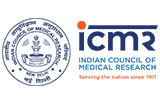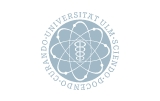UPSIDES aims to evaluate and develop scalable peer support interventions for people with severe mental health conditions.
Why UPSIDES?
Due to various social and systemic challenges, world over, a large percentage of people living with severe mental health conditions do not receive the care and support they require. This deficit is the largest in low- and middle-income countries.
UPSIDES was launched in 2018 with the aim of establishing and scaling-up peer support interventions in diverse settings to address this problem.
Peer support is an evidence-based, yet under-used practice where those who have experienced mental health conditions, support others with similar conditions in their recovery journey.
How are we addressing the issue?
Currently, UPSIDES operates in six countries across Europe, Africa, and Asia.
In India, the intervention is being implemented by the Centre for Mental Health Law & Policy, ILS, Pune, at the Hospital for Mental Health, Ahmedabad, where peer support was first established in 2015 through our QualityRights Gujarat project
UPSIDES uses a multicentre, pragmatic randomised controlled trial and implementation research framework to assess the effectiveness and impact of the intervention.
What is the potential impact?
UPSIDES will generate evidence for sustainable best practices to replicate and scale-up peer support interventions in high- middle- and low-resource settings.
By actively involving and empowering service users, UPSIDES will move mental health systems towards recovery-oriented care, user-centredness, and community participation to realise mental health as a human right.
UPSIDES will also inform mental health policy, implementation, and practice to ensure that the perspectives and potential contributions of people with lived experiences are foregrounded.
Where have we reached?
At present, the team has completed collecting qualitative and quantitative data as well as one-to-one peer support (recovery) sessions with the intervention participants of the trial. We now aim to make peer-led recovery sessions available to all service users at the Hospital for Mental Health, Ahmedabad, where the project is implemented.
We have also conducted workshops with the hospital staff to involve them in the peer support process, with the objective to build sustainable peer support practices.
Our trainers have also conducted a Training of the Trainer (ToT) workshop for SCARF, Chennai, on the UPSIDES training modules for the implementation of peer support work at their organisation.
Project Leads
Jasmine Kalha, Centre for Mental Health Law & Policy, ILS, Pune
Bernd Puschner, Ulm, Germany
Mike Slade, Nottingham, UK
Candelaria Mahlke, Hamburg, Germany
David Basangwa, Butabika, Uganda
Grace Ryan, London, UK
Donat Shamba, Dar es Salaam, Tanzania
Galia Moran, Beer Sheva, Israel
Funders & Partners
Funded by
Indian Council of Medical Research
European Union Funding for Research & Innovation
Partners
Ulm University, Germany
University of Nottingham, U.K
University Medical Center Hamburg-Eppendorf, Germany
Butabika National Referral Hospital, Uganda
London School of Hygiene and Tropical Medicine, United Kingdom
Ifakara Health Institute and Muhimbii University of Health and Allied Science, Tanzania
Ben Gurion University of the Negev, Beer Sheva, Israel
Centre for Mental Health Law & Policy, Indian Law Society, Pune, India.
FAQs
What is the UPSIDES Project?
UPSIDES aims to evaluate and develop scalable peer support interventions for people with severe mental health conditions.
Due to various social and systemic challenges, world over, a large percentage of people living with severe mental health conditions do not receive the care and support they require. This deficit is the largest in low- and middle-income countries.
UPSIDES was launched in 2018 with the aim of establishing and scaling-up peer support interventions in diverse settings to address this problem.
What are peer support interventions?
UPSIDES uses a multicentre, pragmatic randomised controlled trial and implementation research framework to assess the effectiveness and impact of the intervention.
By actively involving and empowering service users, UPSIDES will move mental health systems towards recovery-oriented care, user-centredness, and community participation to realise mental health as a human right.
UPSIDES will also inform mental health policy, implementation, and practice to ensure that the perspectives and potential contributions of people with lived experiences are foregrounded.
In which countries is UPSIDES implemented?
Currently, UPSIDES operates in six countries across Europe, Africa, and Asia.
In India, the intervention is being implemented by the Centre for Mental Health Law & Policy, ILS, Pune, at the Hospital for Mental Health, Ahmedabad, where peer support was first established in 2015 through our QualityRights Gujarat project
What is the role of the Centre for Mental Health Law & Policy in UPSIDES?
In India, the intervention is being implemented by the Centre for Mental Health Law & Policy, ILS, Pune, at the Hospital for Mental Health, Ahmedabad, where peer support was first established in 2015 through our QualityRights Gujarat project








